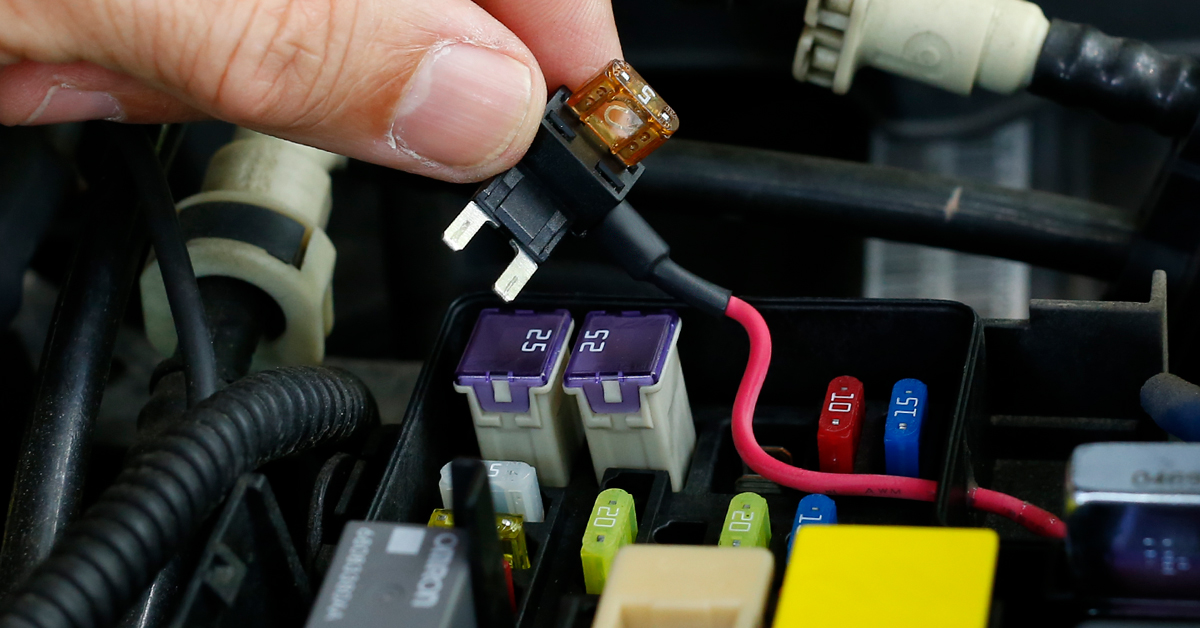Car Fuses: Your Guide to Locating and Understanding Their Functions
Introduction: Let's Talk Car Fuses - Your Vehicle's Unsung Heroes
Hey there, fellow road warrior! Have you ever wondered about those tiny but oh-so-important components that keep your car's electrical system in check? That's right, we're talking about car fuses! In this blog post, we're going to delve into the world of car fuses in a down-to-earth, human-centric way. We'll cover everything from where to find them to what they actually do. So, let's roll up our sleeves and get to know these unsung heroes of the automotive world!
Chapter 1: The Basics - What Are Car Fuses, Anyway?
Alright, let's start at the beginning. Car fuses are like the guardians of your vehicle's electrical system. They're small, but they play a huge role in preventing electrical overload and potential damage. Think of them as the safety nets that keep everything running smoothly.
Chapter 2: Where in the World Are They?
Now that we know what fuses are, let's talk about where to find them in your vehicle:
2.1 The Fuse Box - Your Car's Treasure Chest
Most cars have a dedicated fuse box, usually located in the engine bay or on the driver's side dashboard. It's like the treasure chest of electrical protection, housing all the fuses for various components.
2.2 The Owner's Manual - Your Map to the Treasure
If you're not sure where to start, grab your car's owner's manual. It's like your trusty treasure map, guiding you to the exact location of the fuse box and explaining which fuse is responsible for what.
Chapter 3: Understanding Fuse Types and Functions
Alright, let's get into the nitty-gritty of fuse types and what they actually do:
3.1 Blade Fuses - The Workhorses of the Electrical System
These are the most common type of fuses in modern vehicles. They're flat, with two prongs that plug into the fuse box. Blade fuses come in different colors, each representing a specific amp rating, which determines their function.
3.2 Mini Fuses - Small But Mighty
As the name suggests, mini fuses are smaller versions of blade fuses. They're commonly found in compact cars and some older models. Just like their larger counterparts, they come in different colors and amp ratings.
3.3 Maxi Fuses - Heavy-Duty Guardians
Maxi fuses are larger and designed to handle higher amperage loads. They're typically used for critical components like the alternator or starter motor. These fuses are like the heavyweight champions of the fuse world.
Chapter 4: Troubleshooting and Replacing Fuses - DIY Style
Now, let's talk about what to do when a fuse decides to call it quits:
4.1 Fuse Tester or Multimeter - Your Detective Tools
If you suspect a fuse might be the culprit for an electrical issue, grab a fuse tester or a multimeter. These tools help you determine if a fuse is blown or still functional. It's like being a detective, searching for clues to solve the case.
4.2 Fuse Puller or Needle-Nose Pliers - Your Extraction Tools
When it's time to replace a fuse, you'll need a fuse puller (usually included in the fuse box) or a pair of needle-nose pliers. These tools make it easy to remove and replace a blown fuse.
Chapter 5: When to Seek Professional Help
While DIY fuse replacement is straightforward, there are times when it's best to call in the experts:
5.1 Multiple Blown Fuses - A Sign of Deeper Issues
If you find yourself replacing fuses frequently, it could be a symptom of a more significant electrical problem. In such cases, it's best to consult a professional mechanic or auto electrician.
5.2 Complex Electrical Systems - Beyond DIY Territory
Some vehicles have highly intricate electrical systems that may require specialized knowledge and equipment. If you're dealing with a complex issue, it's wise to seek professional assistance.
Chapter 6: Tips for Preventing Fuse Blows and Electrical Issues
Now that you're well-versed in car fuses, let's talk about how you can prevent future electrical hiccups:
6.1 Regular Inspections - Keeping an Eye on Your Electrical System
Take some time to visually inspect your fuses periodically. Look for any signs of corrosion, discoloration, or damage. Catching potential issues early can save you from unexpected electrical troubles down the road.
6.2 Avoid Overloading Circuits - Distributing the Load
Each fuse is designed to handle a specific amount of electrical load. Avoid plugging in high-powered accessories or overloading a circuit with multiple devices. This helps prevent blown fuses and potential damage to your electrical system.
6.3 Address Underlying Issues Promptly - Nipping Problems in the Bud
If you notice a recurring issue with a specific fuse, it's important to address the underlying cause. Don't simply replace the fuse and move on. Investigate why it keeps blowing to prevent further problems.
Chapter 7: Upgrading Your Fuse Box - A Boost for Your Electrical System
In some cases, upgrading your fuse box can provide added protection and improved performance:
7.1 Modern Fuse Boxes - Harnessing Advanced Technology
Newer vehicles may come equipped with more advanced fuse boxes that offer enhanced protection and better organization. Consider upgrading if your vehicle is compatible.
7.2 Fuse Box Add-ons - Customizing Your Electrical Arsenal
For enthusiasts who've added aftermarket accessories like high-powered sound systems or additional lighting, consider installing auxiliary fuse boxes. These provide dedicated circuits to handle the extra load.
Chapter 8: Fuses and Your Vehicle's Electronics - A Symbiotic Relationship
Understanding the relationship between fuses and your vehicle's electronics is key to maintaining a harmonious electrical system:
8.1 Protecting Vital Components - Safeguarding Your Ship's Engine
Fuses play a crucial role in protecting essential components like the engine control unit (ECU) and other sensitive electronics. Without proper fuse protection, these components could be at risk of damage.
8.2 Adapting to Modern Vehicle Technology - Navigating the Tech Waters
With the increasing complexity of modern vehicles, the importance of fuses has grown. They act as a safety net, preventing electrical issues that could disrupt advanced technologies like advanced driver-assistance systems (ADAS) and infotainment systems.
Conclusion: Embracing Your Inner Auto Electrician
And there you have it, fellow automotive enthusiast! You're now equipped with the knowledge to locate, understand, and even replace car fuses with confidence. Remember, fuses are like the unsung heroes of your vehicle, quietly ensuring everything runs smoothly.
So, the next time you're faced with an electrical hiccup, don't be afraid to roll up your sleeves and channel your inner auto electrician. With a little know-how and the right tools, you'll be back on the road in no time.








